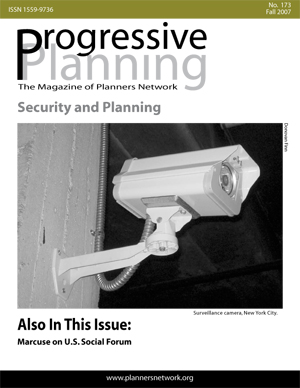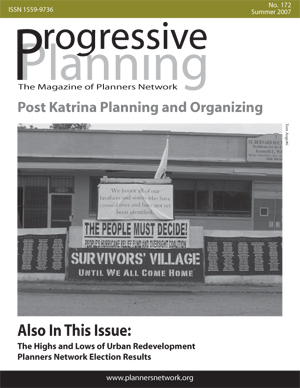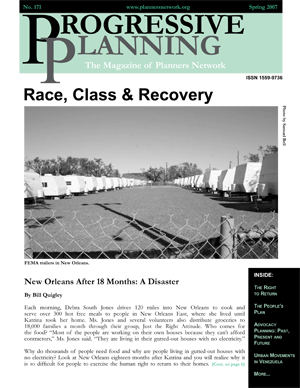Fall 2007 Security and Planning
Security and Planning After 9-11 by Amy Siciliano and Norma Rantisi Networked Security in the City: A Call to Action for Planners by Matt Hidek Civic Duty: From Neighborhood Watch to ‘USAOnWatch’ by Marilena Liguori Israel’s Wall in Palestine: Control,…


